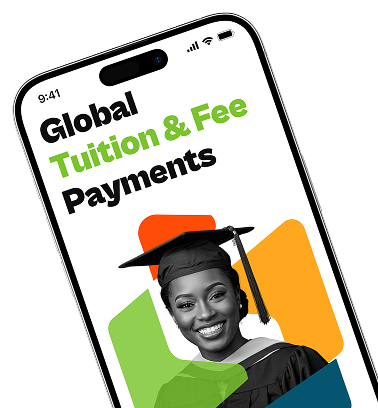Relocating to a new country can be daunting, especially when handling the paperwork. Some countries may not accept your certificates and require legalization and authentication.
How do I legalize and authenticate my documents? Legalizing and authenticating documents refers to verifying their genuineness by confirming whether the signatures and seals on them are legitimate. The process is carried out by the Ministry of Foreign Affairs, which makes it valid for acceptance in other countries.

- Authentication is the first step in which documents are checked for validity and genuineness by a notary public or relevant authority.
- Legalization: Documents are legalized by embossing them after authentication to ensure they are valid in other countries. Legalization applies to states that are non-members of the Hague Convention, which abolished the requirement of legalization for foreign public documents on 5 October 1961.
- Convention: Some countries are members of the Hague Apostille Convention, which allows for a simpler "apostille" stamp instead of full legalization for certain documents.
- Specific requirements: Document legalization varies depending on what a country wants to use the document for.
Note: The consul can only legalize originals and official copies of documents. Photocopies and computer printouts cannot be legalized.
Before you present the documents to the consul, they must be authenticated by a competent local authority, such as the Ministry of Foreign Affairs (MFA). The consul will refuse to legalize documents without prior super legalization.
A new legalization cannot be done on a document with an existing legalization sticker.
A document can only be certified as a true copy by the same institution that issued its original. Thus, a photocopy of a document that has not been certified as a true copy or certified by a body/office other than the issuing institution is not acceptable.
All documents (original or certified true copy) to be legalised must be authenticated at the Ministry of Foreign Affairs. This authentication by MFA officers is valid for six months only.
A document that is official and legal in one country is not necessarily official and legal in another.
Why must I authenticate and legalize my document?
Nigeria is not part of the Apostille Convention. Therefore, any document duly issued in Nigeria for usage abroad must be duly notarized by a Notary Public (usually lawyers) and authenticated at the MFA.
How long does the legalization process take?
The time required for the legalization process depends on factors like the efficiency of the institutions involved and the specific requirements of the destination country.
Authorities in the Document Authentication & Legalization Process:
- Ministry of Education: Authentication by the Nigeria Ministry of Education ( for educational purposes)
- Ministry of Foreign Affairs
- Foreign Country Embassy or Consulate
Types of Documents that can be Authenticated
- Birth Certificate: From the National Population Commission (NPC).
- Single Status Certificate: From a Local Government authority or the Federal Ministry of Interiors.
- Marriage Certificate: From a Local Government or Federal Ministry of Interiors
- Police Character Certificate: From the Nigeria Police Force.
- Academic Documents: These are from a school or examination body but must be verified by the Federal Ministry of Education first.
- Adoption/Divorce/Custody Orders: From a court.
All documents to be legalized must first be authenticated by the Nigerian Ministry of Foreign Affairs.
How to legalize your documents:
- Birth/Death certificate:
- Visit the NPC website National Population Commission
- Click Request certificate verification
- Select the certificate module you want to verify (birth, death, etc.)
- Enter certificate number
- Choose the Embassy (Embassy of Belgium)
- Enter reason for verification and click next
- Input your email address and check your email for OTP to validate it
- Proceed to make payment either with (a payment reference to continue your verification or a fresh payment)
- Submit application – After this, you will receive a letter of verification with a unique verification token in your email.
- Print the verification email that contains the token and present it alongside your documents to be legalized at the embassy.
Each token is document and embassy-specific (One document token can only be used at an Embassy per time)
Required Documents:
- Original attestation of Birth
- A letter of verification with a unique verification token
- The original statutory declaration of age
- A clear coloured copy (front & back sections) of the declarant’s valid identity card. (NIN slip is not accepted)
2. Academic documents: All academic certificates and transcripts must be authenticated at the Ministry of Education. Students’ copies are not acceptable. Online printouts of WASSC and NECO should not be submitted.
3. Affidavits: All affidavits must be accompanied by a clear, coloured copy (front and back sections) of the declarant’s valid identity card (an NIN slip is not accepted).
For an affidavit of change of name or name confirmation/re-arrangement, the public notice of name change (e.g., newspaper publication) should have been published at least 21 days before submitting the documents for legalization.
4. Parental authorization/Parental consent (for a family reunion and indefinite stay of minors abroad): This consent can only be filled out and signed by the parent at the Embassy of Belgium in Abuja.
5. Police character: Only the new digital police character certificate is accepted. It has a validity period of 3 months only.
6. Marriage certificate: Marriage certificates NOT obtained from the Federal marriage registry must be confirmed by the Ministry of Interior before submission for legalization.
What are the Steps for Authentication?
- Notarization: The document must be notarized by a Notary Public. The Federal Ministry of Education must attest to an academic certificate or transcript in Abuja before the MFA can authenticate
- Authentication at the Ministry of Foreign Affairs: The notarized document is authenticated by the MFA Headquarters in Abuja. Here is how authentication is done:
- Payment of Fees: The applicant must pay the prescribed fee and submit proof of payment at the MFA.
- Verification and Authentication: The MFA will verify the document's authenticity and, if found genuine, will authenticate it.
- Representation: An applicant be represented by an attorney if not available in Nigeria or cannot be physically present in Abuja for any reason
The MFA authentication does not bear the name of the officer or diplomat that attests to the document.
Points to Note:
- Please check with the country’s authority for which documents a legalization is required
- Laminated documents cannot be legalized
- Only original documents are to be scanned for legalization purposes. Certified copies of documents are not accepted. Do not post original documents to the Embassy.
- All original documents are legalized by the Ministry of Foreign Affairs of the country of origin of the documents.
- All scanned documents as email attachments are sent in PDF format and readable copies.
- Please make sure that the names on the documents to be legalized match the given names on the copy of the passport(s).





